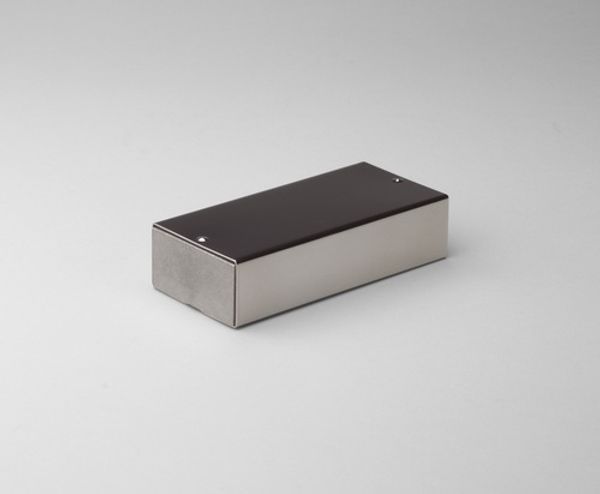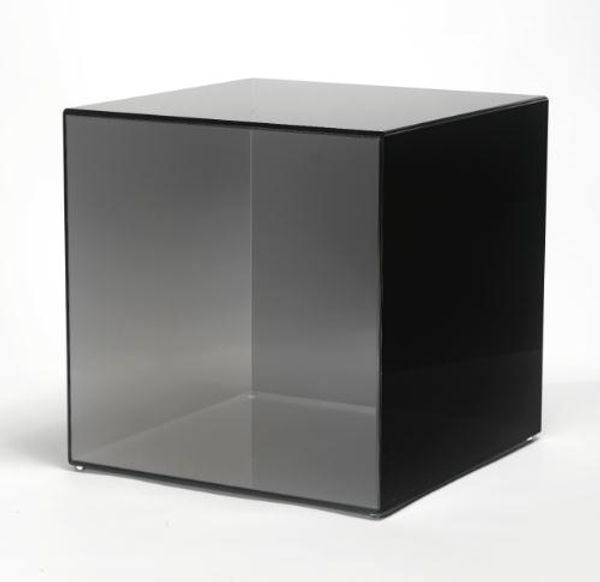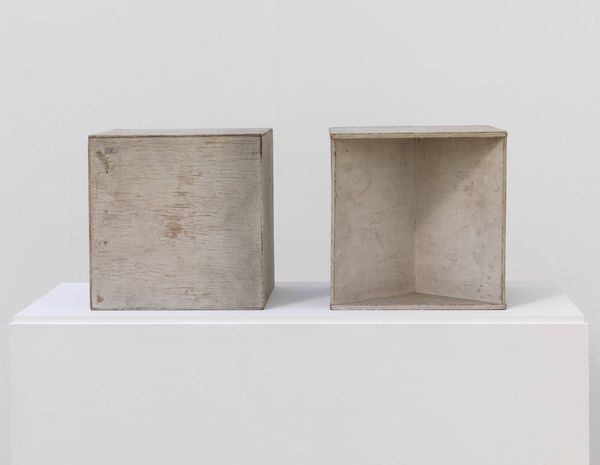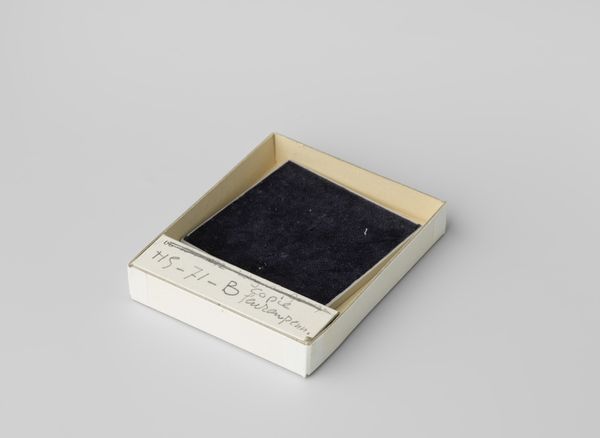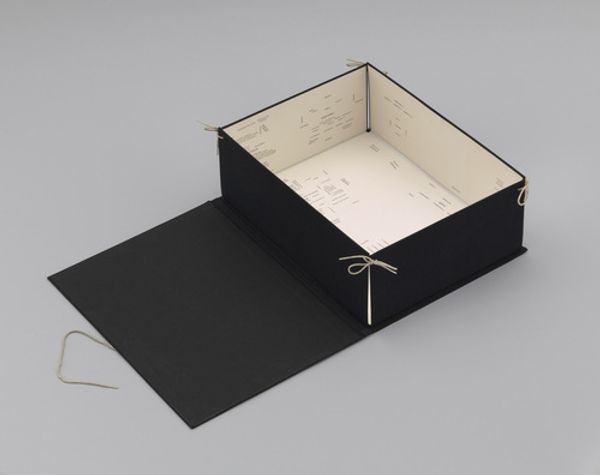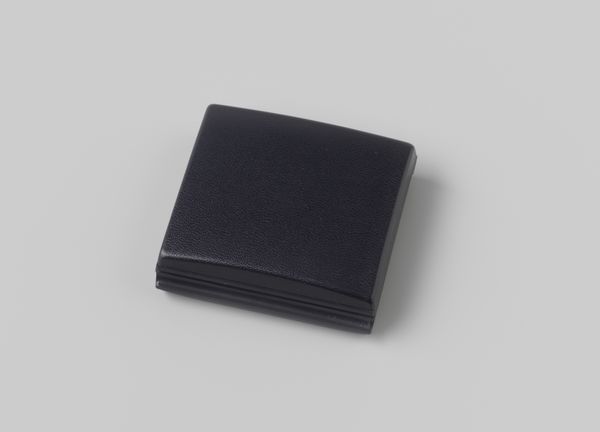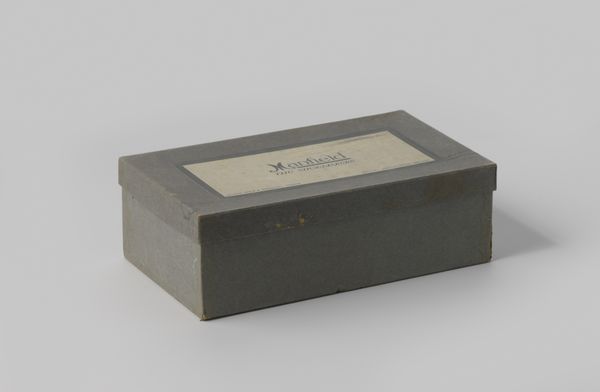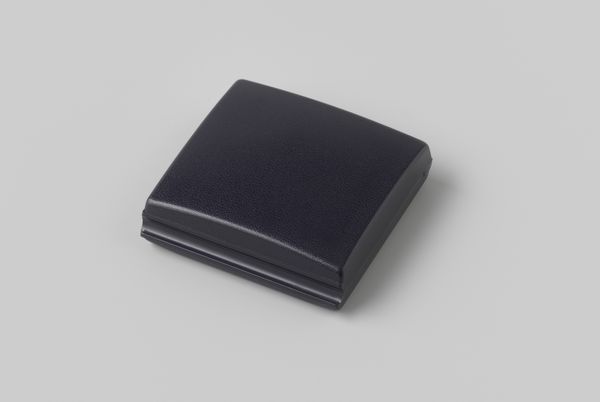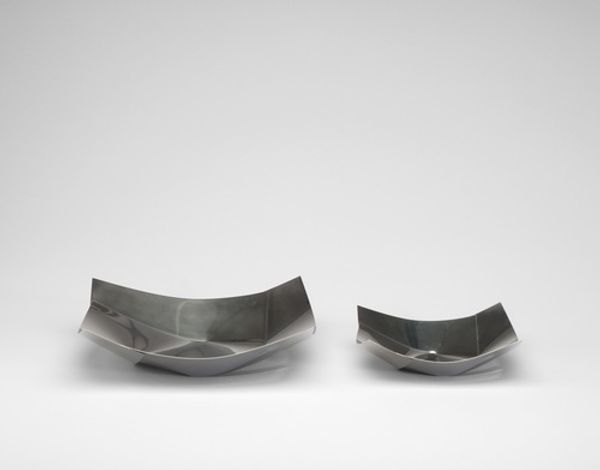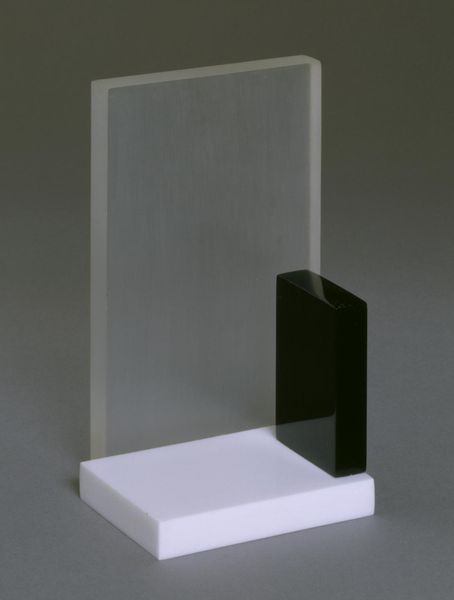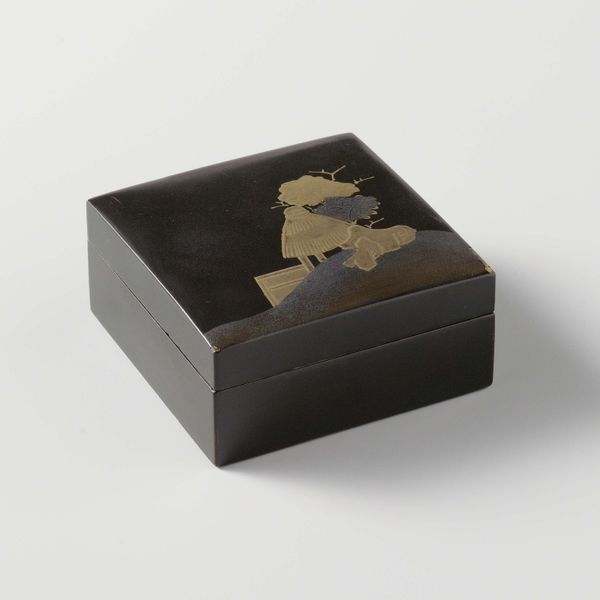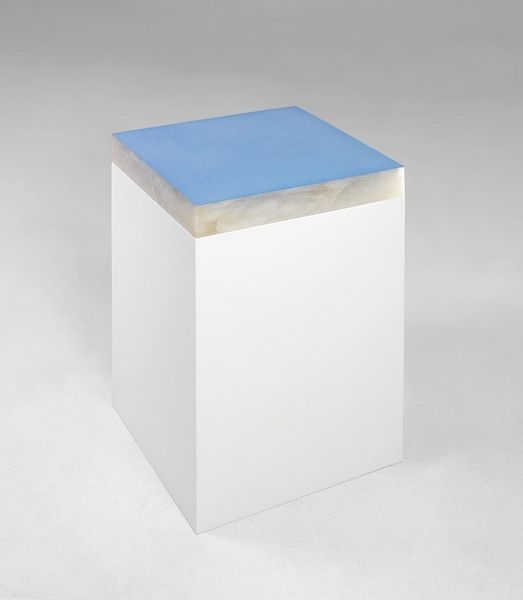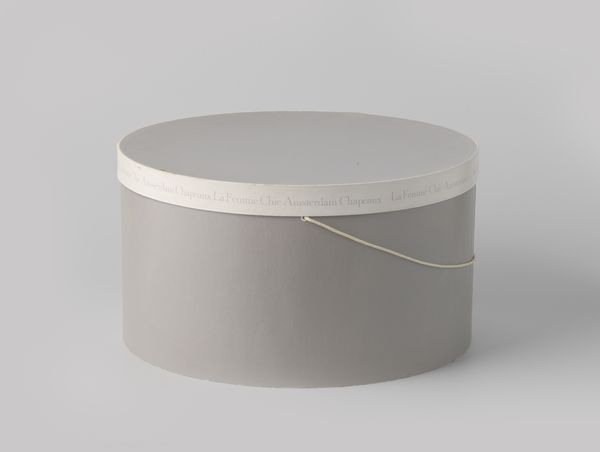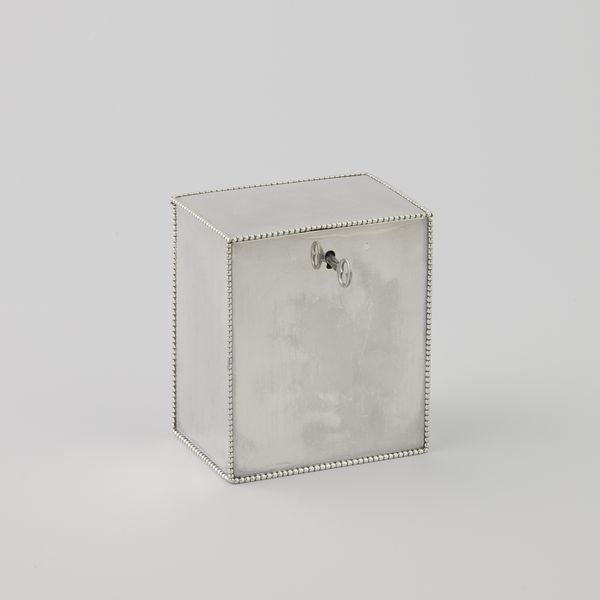
metal
#
product shot
#
3d model
#
3d printed part
#
metal
#
plastic material rendering
#
virtual 3d design
#
product design photgrpaphy
#
3d shape
#
rectangle
#
geometric
#
metallic object render
#
product mock up
#
modernism
#
product render
Copyright: Bruno Munari,Fair Use
Editor: We're looking at Bruno Munari's "Cubo Ashtray Design" from 1957, made of metal. There are two of them, different sizes, simple cubic forms. It's so minimalist it almost feels severe, in a beautiful way. What can you tell us about its design significance? Curator: Its significance lies in its subversion of the very notion of 'design'. Munari, deeply influenced by the post-war Italian context, used such everyday objects to critique consumer culture. These weren't just ashtrays; they were provocations. Editor: Provocations? In what way? It just seems so...functional. Curator: Exactly! After the war, Italy was rebuilding, embracing mass production. Munari, part of the MAC (Movimento Arte Concreta), was interested in the democratization of art through industrial design. He challenged the preciousness associated with fine art. By elevating something mundane like an ashtray to the level of design, he was questioning those ingrained hierarchies. What’s the public function of this particular object, do you think? Editor: Hmm… Well, practically it holds ashes, but maybe socially it points to habits and their implications? And the simplicity of the design forces you to really *see* it, I guess. Curator: Precisely. The very ordinariness becomes a canvas for considering broader socio-political issues linked to the consumerism boom. Munari’s brilliance lay in embedding these critiques within functional, accessible objects, blurring the lines between art, design and the everyday. Editor: I never would have thought of an ashtray as a social commentary. This has totally changed how I view design! Curator: It's a reminder that even the most ordinary things can be powerful tools for observation and critique.
Comments
No comments
Be the first to comment and join the conversation on the ultimate creative platform.
